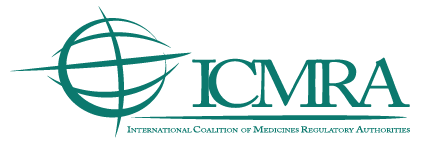Global regulators commit to playing their part in tackling antimicrobial resistance as a priority
The International Coalition of Medicines Regulatory Authorities (ICMRA) reiterates that preserving the effectiveness of antimicrobials is a top priority globally for the protection of public health and that regulators have an important role to play, in line with the political declaration1 approved at the 79th United Nations General Assembly2 (UNGA).
Antimicrobial resistance is a complex problem that affects the whole world and needs to be addressed in a One Health approach that recognizes that the health of people, animals, and ecosystems are interconnected.
International regulators agree that a multifaceted approach, which includes fostering prudent use of existing treatments, developing new innovative antimicrobials, promoting better use of vaccines, supporting research on alternatives, and delivering better diagnostic tools at the point of care, is needed. Medicine regulators play a key role in encouraging research and development to help bring to the market safe, effective and high-quality medicines that can help curb antimicrobial resistance. International collaboration is crucial to enable streamlining of regulatory requirements which will facilitate access to critical antimicrobials around the world. To this effect, ICMRA members commit to exploring how to ensure that a single development plan as a basis for authorisation applications in all regions for one or two novel antimicrobials in the global pipeline, with the aim of expediting approval and making it/them available faster for patients around the world.
Alongside the development of new antimicrobials, the need to prioritise research into alternatives to antimicrobials, such as bacteriophages, is pressing. ICMRA members also advocate for an expanded use of vaccines to prevent bacterial infections, a strategy that could reduce the number of antibiotics needed by 22% per year globally3 and lower the risk of antimicrobial resistance.
ICMRA regulators agree on the need to strengthen supply chains in regions where the risk of falsified or substandard antimicrobials entering legal pharmaceutical markets is higher. This is a neglected issue that can exacerbate resistance and hinder global efforts to curb antimicrobial resistance.
Global medicine regulators are strongly committed to keep collaborating and joining forces to address this global public health challenge. Engagement and communication at societal level are also essential. For this reason, spreading awareness of antimicrobial resistance through effective campaigns among people, healthcare professionals, patients, is crucial around the world.
Since its inception, ICMRA has provided a platform for international regulators and other key stakeholders to discuss, agree on a strategic direction and find innovative solutions to fight the spread of antimicrobial resistance. Combatting antimicrobial resistance has been a strategic priority for ICMRA from the start.
Building on a joint statement on antimicrobial resistance4 published in 2019, ICMRA adopted a project in 2021 focusing on antimicrobial resistance best practices. The project5 leveraged the collective knowledge and experience of ICMRA members to develop case studies to highlight successful or promising regulatory and non-regulatory interventions in different jurisdictions to address antimicrobial resistance.
Addressing antimicrobial resistance is a collective responsibility, and progress on this front can be achieved if all stakeholder groups understand the actions they can take to make a difference. Solving a complex public health crisis like antimicrobial resistance requires all of us to play our part. Lives are at risk and this crisis is no longer an invisible threat; it is a clear and present danger.
1: https://www.un.org/pga/wp-content/uploads/sites/108/2024/09/FINAL-Text-AMR-to-PGA.pdf
2: https://www.who.int/news-room/events/detail/2024/09/26/default-calendar/un-general-assembly-high-level-meeting-on-antimicrobial-resistance-2024
3: https://www.who.int/news/item/10-10-2024-better-use-of-vaccines-could-reduce-antibiotic-use-by-2.5-billion-doses-annually--says-who
4: In July 2019, ICMRA published a joint statement that emphasises the need for cross-sectoral, global cooperation to curb the spread of antimicrobial resistance. It is available at: https://icmra.info/drupal/sites/default/files/2019-11/ICMRA_Antimicrobial_Resistance.pdf
5: In November 2022, ICMRA published a report that highlights successful regulatory and non-regulatory interventions used in different countries to address antimicrobial resistance. It is available at: https://icmra.info/drupal/sites/default/files/2022-11/amr_best_practices_report.pdf

